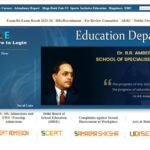On a crisp evening in early July, Prime Minister Narendra Modi arrive in Moscow for what was anticipate to be a momentous diplomatic engagement. This visit, marking Modi’s first trip to Russia since Moscow’s invasion of Ukraine in February 2022, was crucial not only for the bilateral relationship between India and Russia but also for the broader geopolitical landscape. Modi’s visit, which included attending the 22nd India-Russia Annual Summit, was underscore by significant global and regional concerns.
A Diplomatic Prelude: Arrival and Initial Engagement
Prime Minister Modi touch down in Moscow on the evening of July 8, 2024. His arrival was met with a warm reception from Russian officials, highlighting the importance Russia places on this visit. At the Vnukovo-II VIP airport, Russian First Deputy Prime Minister Denis Manturov was on hand to welcome Modi, a gesture that underscored the high level of diplomatic engagement anticipated.
Later that evening, President Vladimir Putin hosted Modi for a private, informal dinner at his dacha in Novo-Ogaryovo, a rare honor reserved for select guests. This informal meeting allowed both leaders to engage in a candid exchange of views away from the formality of structured talks. During this meeting, Putin extended congratulations to Modi on his recent re-election, praising him for his leadership and noting India’s impressive economic growth. Putin’s remarks, emphasizing Modi’s personal energy and effectiveness, were as much about honoring a longstanding ally as they were about setting the stage for deeper discussions.
Navigating Diplomatic Tensions
The timing of Modi’s visit was particularly sensitive given the ongoing conflict between Russia and Ukraine. The United States had recently raised concerns about India’s relationship with Russia, urging New Delhi to use its influence to push Moscow toward respecting the UN Charter and Ukraine’s sovereignty. The Biden administration has been vocal about its concerns regarding India’s continued ties with Russia, especially as the war in Ukraine has escalated.
In response, the Indian government has maintained a cautious stance. While India has abstained from condemning Russia outright at international forums and has emphasized its traditional ties with Moscow, it has also consistently called for a peaceful resolution to the conflict. Modi’s visit to Russia was seen as an opportunity to reaffirm this delicate balancing act — strengthening bilateral ties with Russia while addressing global concerns about the ongoing war.
During the informal meeting, Modi voiced India’s position on the conflict, reiterating that there is no solution on the battlefield. He underscored India’s commitment to dialogue and diplomacy as the pathway to resolving the crisis. This stance aligns with India’s broader foreign policy, which seeks to avoid taking sides in global conflicts while advocating for peaceful resolutions through dialogue.
Economic and Strategic Discussions
The formal summit on July 9 was set to tackle a range of issues, with economic cooperation and regional security at the forefront. Both leaders were expect to discuss strategic partnerships, including defense and energy cooperation, which have been pillars of the India-Russia relationship for decades.
One critical issue on the agenda was the situation of Indian nationals who had been deceive into joining the Russian military to fight in Ukraine. Reports indicated that unscrupulous travel agents had tricked several Indians into enlisting by promising high-paying jobs. Modi raise this issue during his meeting with Putin, seeking assurances that these individuals would be repatriate. Russia’s commitment to resolving this issue was seen as a positive step in addressing one of the more pressing concerns of the Indian government.
Additionally, the summit was expect to cover bilateral economic initiatives, including trade and investment opportunities. Both nations have been exploring ways to deepen economic ties, with discussions likely focusing on increasing trade volumes and enhancing cooperation in key sectors such as energy, defense, and technology.
The Broader Implications of the Visit
Modi’s visit to Russia comes at a time of shifting global dynamics. The Russia-Ukraine conflict has realigned international relations, and countries like India find themselves navigating a complex landscape of global pressures and national interests. For India, maintaining a strong relationship with Russia is crucial due to historical ties, strategic interests, and defense partnerships. At the same time, India faces pressure from Western nations, particularly the United States, to reassess its ties with Moscow in light of the ongoing conflict.
The visit also highlighted the evolving nature of India-Russia relations. While the traditional partnership remains strong, there is a clear acknowledgment of the changing global order and the need for both nations to adapt their strategies accordingly. For Modi, the visit was an opportunity to reinforce India’s position on the global stage while securing practical outcomes in bilateral relations.
Public and Diplomatic Reactions
The diplomatic choreography surrounding Modi’s visit has drawn varied reactions. On the one hand, the warm reception from Putin and the informal, personal engagement underscored the enduring nature of the India-Russia relationship. On the other hand, the visit also drew scrutiny from international observers who are closely watching how India navigates its diplomatic commitments amidst the Ukraine crisis.
The U.S. State Department’s comments on India’s relationship with Russia reflect the broader international concern about how countries are aligning themselves in response to the war in Ukraine. While India has reiterated its call for a peaceful resolution. Its continue engagement with Russia is closely monitor by Western nations.
Conclusion: A Balancing Act
Prime Minister Narendra Modi’s visit to Russia was emblematic of the complex balancing act that characterizes India’s foreign policy in the current geopolitical climate. The visit served to reinforce traditional ties with Russia while addressing contemporary challenges. Including the ongoing Ukraine conflict and its implications for global diplomacy.
As Modi and Putin engaged in discussions on economic cooperation, strategic partnerships, and regional security. The broader message of the visit was clear: India seeks to maintain its strong historical ties with Russia while navigating the shifting sands of global politics. The outcome of the summit, and the subsequent actions taken by both nations. It will likely shape the future trajectory of the India-Russia relationship and its role in the global order.












